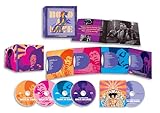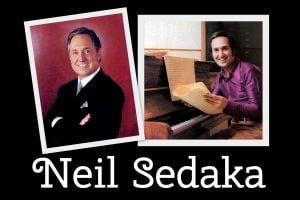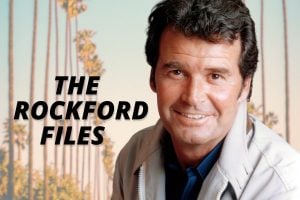He ascended to rock royalty in the late 1960s, his guitar a weapon of sonic innovation and his music a fusion of blues, rock, jazz, and Eastern influences. Though tragically brief, his life left an indelible mark on rock history.

Early struggles and musical dawn
Hendrix’s childhood was challenging, marked by frequent moves and family hardships. After a short stint in the army, he honed his guitar skills on the Chitlin’ Circuit, playing alongside blues titans like B.B. King and Sam Cooke.
By the mid-1960s, his talent garnered recognition, leading him to become a sought-after session musician. This caught the eye of British guitarist Noel Redding and manager Chas Chandler (also formerly of The Animals), who saw his potential for greatness.

From sessions to stardom
In 1966, Hendrix formed The Jimi Hendrix Experience, with Redding on bass and Mitch Mitchell on drums. Their debut album, “Are You Experienced,” rocked the world.
Hendrix’s searing guitar work and genre-bending compositions, along with hits like “Purple Haze” and “Hey Joe,” propelled him to global stardom. His flamboyant stage presence and technical prowess left audiences mesmerized.

Peak and experimentation
The next few years saw Hendrix at the height of his powers. He released critically acclaimed albums like “Electric Ladyland” and “Axis: Bold as Love,” collaborated with renowned artists like Eric Clapton and Steve Winwood.
The man also delivered legendary performances at the Monterey Pop Festival — a precursor to the Summer of Love — in 1967 and Woodstock in 1969. He continued to push musical boundaries, incorporating Eastern influences and experimenting with studio technology.

An enduring legacy after his tragic demise
On September 18, 1970, Hendrix’s life tragically ended in London at the age of 27 from a barbiturate overdose — below, you can read 1960s news stories right after that happened.
Despite the brevity of his career, his influence remains unmatched. Jimi Hendrix’s pioneering use of distortion, feedback, and effects, his masterful blending of genres, and his raw emotional power continue to inspire musicians across generations.
Hendrix was a musician, yes, but he was also a cultural icon, a symbol of rebellion and artistic freedom. His electrifying energy and genre-defying music continue to resonate, serving as proof positive of the transformative power of music. His flame still burns brightly in the hearts of music lovers everywhere.

Jimi Hendrix: Music a key to the times (1970)
The first black sex symbol, his music was a perfect key to the times.
By Robert Hilburn – Democrat & Chronicle (Rochester, New York) October 6, 1970
Like Elvis Presley a decade before him, Jimi Hendrix was so sociologically rooted to his young audience that few outside of that audience could even understand why he was popular at all.
His music was noisy by any traditional standards, his voice was a virtual monotone, his stage act was characterized by such gimmicks as setting fire to his guitar, and his dress was outlandish.
Ever since the rock revolution of the mid-1950s, when people like Elvis Presley, Jerry Lee Lewis and Little Richard alternately shocked and outraged parents, adults have tried to view the whole rock scene with calm sophistication. They have tried to tolerate everyone.
They even grew to like the Beatles (after all, they figured, anyone who wrote ”Yesterday” couldn’t be all bad, and Leonard Bernstein did praise them), accepted the Rolling Stones, could see merit in soul singers like Otis Redding, and were even ready to welcome Presley with open arms by the time he returned to live performances in Las Vegas.

But Hendrix was something else. And it was precisely that ‘something else’ that helped to make him a star. Hendrix was an extreme in American music and in the tastes of young people.
He represented in the mid-1960s the same thing in several ways that Presley and the rock pioneers represented in the mid-1950s: Rebellion, a personal hero, excitement, new lifestyles. And, not insignificantly, he was black. Hendrix was the first black sex symbol in rock music for white America.
Little Richard, Fats Domino, Chuck Berry, Chubby Checker and other earlier black artists had achieved much popularity in white circles, but they never really became sex symbols.
It was, sociologically, too early. But a lot had happened in America — from the civil rights marches in the south to the campus uprisings in the north — by the time Hendrix tame along. He was to be called the “Cassius Clay of rock” and the “black Elvis” and both described, partially, his role.
ALSO SEE: Chuck Berry, the real daddy of rock ‘n’ roll, goes on a cosmic boogie trip (1972)
Hendrix’s music was perfectly tied to the times. It was a troubled, violent, confused, searching music on one hand, an assertive, demanding, triumphant, sensual music on the other.

On stage, he would play the guitar behind his back, put it between his legs, as a phallic symbol, pick the strings with his teeth, reaching new extremes of volume and experimentation as he did.
Though it was often lost beneath the theatrics, Hendrix was a superb guitarist. His special attraction, however, was his masterful use of feedback.
His rise was timed just right. Stereo had just begun to become widespread and Hendrix’s feedback electronics was perfect for stereo. Millions of young people could put headphones on and experience fully the Hendrix sound revolution.
Wherever he went, he was the target of sex-seeking girl groupies. He was arrested in Toronto in 1969 on charges of heroin possession. At the trial, he admitted having experimented with certain drugs but that he had ”outgrown”‘ it. He denied ever having used heroin. He was found not guilty by the jury.

Hendrix was born, his biography states, in 1946 (though some claim he was 27), spent a brief time in the paratroopers, played guitar in bands for various black singers (from B.B. King to Little Richard to the Isley Brothers) before heading for New York to start his own group.
It was at a club in New York that Charles (Chas) Chandler, an ex-member of Eric Burdon’s Animals, saw Hendrix and suggested he go to England for a while.
In London, Hendrix joined with drummer Mitch Mitchell and bassist Noel Redding — two excellent musicians — in a trio that became known as the Jimi Hendrix Experience. The group’s first record, ”Hey Joe,” became a hit in England.
ALSO SEE: Meet music legend Stevie Wonder, who started his music career at age 13

From the beginning, Chandler noticed the impact Hendrix had on stage. The guitar smashing routine, Chandler said, started by accident. “Jimi was pulled offstage by a few overenthusiastic fans in Munich.
“As he jumped back onstage, he threw his guitar before him. When he picked it up, he saw that it had cracked and several of the strings were broken. He just went balmy and smashed everything in sight. The audience loved it, and we decided to keep it in the act…”
- Audio CD – Audiobook
- English (Publication Language)
- 10/22/2013 (Publication Date) - Legacy Recordings (Publisher)
From that point on, the debate over Hendrix’s artistry and theatrics was to be something of an issue within the industry. Though he toured briefly with (of all people) The Monkees in the United States, his first real impact in this country was at the Monterey International Pop Festival in 1967.

Original news report: Famed rock guitarist Jimi Hendrix dies a millionaire (1970)
By John J. Meehan – The Honolulu Advertiser (Hawaii) Sep 19, 1970
Electric guitarist Jimi Hendrix, 24-year-old millionaire idol of the acid rock generation, died Friday [September 18, 1970] in a London Hospital as the result of an apparent overdose of drugs. [Note: His age was later corrected to 27 years.]
An American musician of Cherokee Indian and Negro stock, Hendrix’s recordings frequently sold more than a million each, and he had been a star attraction at the big rock festivals from New York’s Woodstock to England’s Isle of Wight.

He had been arrested on narcotics charges and some of his concerts in the United States had been banned on grounds of obscenity.
ALSO SEE: Janis Joplin: Find out how the rock legend lived fast and died young in 1970
How Jimi Hendrix died
The tall, rangy, mustachioed guitarist, one of the highest-paid performers in the world, was admitted to St. Mary Abbot’s Hospital at 11:45 a.m. and died about an hour later. Police sources said unspecified drugs apparently caused his death, but a coroner would issue a final ruling.
According to British blues singer Eric Burdon, a close friend of bachelor Hendrix, the guitarist had spent the night with a girlfriend instead of at the Cumberland Hotel, where he was registered.
“She found him in a coma this morning and called for an ambulance,” he said. “All I know is that he had taken some sleeping tablets.”

Hendrix was acquitted of a charge of possessing hashish and heroin in Toronto, Ontario, last December. During the trial, he said he used marijuana, hashish, LSD and cocaine, but never heroin. His most popular song, “Purple Haze,” was descriptive of drug culture.
Hendrix had been on a tour of Europe with his band, and was visiting London after a two and a half-hour appearance last month at the Isle of Wight Festival, which ended on a sour note of violence.
It was in England that Hendrix’s “Experience” group, including bassist Noel Redding and drummer Mitch Mitchell, had some of its greatest triumphs.
Hendrix formed “Experience” in 1966 but it broke up after more than two years and he absented himself from music for a time. Early this year, he rejoined the rock circuit with a new band, “The Band of Gypsies,” which he abandoned after a few months to form his current group.
The short life of James Hendrix
Born James Maurice Hendrix in Seattle, Washington, he was a high school dropout who had served as a parachutist in the U.S. Airborne Forces. After his discharge due to a parachute injury, Hendrix hitchhiked through the American south playing his guitar, and eventually made his way to New York.

Hendrix served his apprenticeship with the Isley Brothers, B.B. King, and Little Richard. He played and sang amplified blues-based fantasies with earthy sensuality, which he claimed was just his way of expressing emotion.
He was spotted in New York by Chas Chandler, bass guitarist with Eric Burdon’s “Original Animals,” and Chandler decided to bring Hendrix to London.
“I saw at once that here was a guy that was going to turn on the chicks and crucify every guitarist in the world,” Chandler recalled.

EARLY LIVE REVIEW: The Jimi Hendrix Experience: First person accounts of what those concerts were like, via reviews from the 60s
Hendrix had been a recording star for Warner Brothers-Seven Arts Records since 1967, was Billboard’s “Artist of the Year” award winner in 1968, and Playboy Magazine’s “Artist of the Year” winner in 1969. He held three Gold Record awards for recordings that sold more than a million copies.
Hendrix was a star of the 1969 Woodstock Festival, and the final scene in the film, “Woodstock” was his rendition of the “Star Spangled Banner.”
His recording hits included “Are You Experienced?”, “Axis: Bold as Love,” “Electric Ladyland,” “Band of Gypsies,” and “Jimi Hendrix Experience and Otis Redding Live in Monterrey,” a current bestseller.
- Audio CD – Audiobook
- 11/07/2025 (Publication Date) - Legacy Recordings (Publisher)
- The Jimi Hendrix Experience - Are You Experienced? - Vinyl Brand New
- Medium guage
- Bold As Love Collection
- One dozen Classic Celluloid Picks adorned with collective album art
- Audio CD – Audiobook
- 10/04/2024 (Publication Date) - Legacy Recordings (Publisher)



























